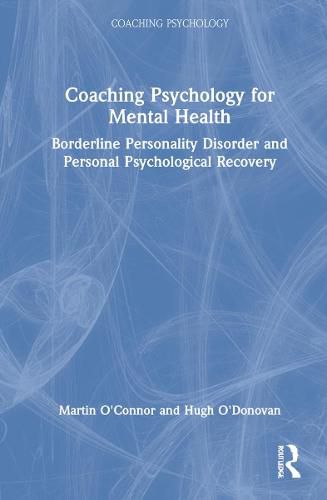Readings Newsletter
Become a Readings Member to make your shopping experience even easier.
Sign in or sign up for free!
You’re not far away from qualifying for FREE standard shipping within Australia
You’ve qualified for FREE standard shipping within Australia
The cart is loading…






Traditionally, coaching psychologists have worked with people who aren’t experiencing significant mental distress or have diagnosed mental illness. This book describes an innovative and challenging project of bringing coaching psychology to the lived experience of individuals with a diagnosed mental illness, Borderline Personality Disorder (BPD).
The authors present a case for why coaching psychology needs to be constructively challenged to broaden its base and be more inclusive and of service to people experiencing BPD in particular. The book describes a coaching interaction involving coaching psychologists and a number of individuals with BPD who had completed a behavioural skills programme (Dialectical Behaviour Therapy; DBT). It explores the epistemological and practice tensions involving the dominance of clinical recovery (elimination of symptoms) in mental health services and personal or psychological recovery (originating in the narratives of people with a diagnosis of mental illness who yearn to live a life worth living).
This book, written amidst the Covid-19 pandemic, makes a compelling case for coaching psychologists to engage with the philosophy and practice implications of personal recovery, at both professional and personal levels. It will be vital reading for those engaged in coaching psychology and for the education, training and continuous professional development of coaches and coaching psychologists.
$9.00 standard shipping within Australia
FREE standard shipping within Australia for orders over $100.00
Express & International shipping calculated at checkout
Traditionally, coaching psychologists have worked with people who aren’t experiencing significant mental distress or have diagnosed mental illness. This book describes an innovative and challenging project of bringing coaching psychology to the lived experience of individuals with a diagnosed mental illness, Borderline Personality Disorder (BPD).
The authors present a case for why coaching psychology needs to be constructively challenged to broaden its base and be more inclusive and of service to people experiencing BPD in particular. The book describes a coaching interaction involving coaching psychologists and a number of individuals with BPD who had completed a behavioural skills programme (Dialectical Behaviour Therapy; DBT). It explores the epistemological and practice tensions involving the dominance of clinical recovery (elimination of symptoms) in mental health services and personal or psychological recovery (originating in the narratives of people with a diagnosis of mental illness who yearn to live a life worth living).
This book, written amidst the Covid-19 pandemic, makes a compelling case for coaching psychologists to engage with the philosophy and practice implications of personal recovery, at both professional and personal levels. It will be vital reading for those engaged in coaching psychology and for the education, training and continuous professional development of coaches and coaching psychologists.